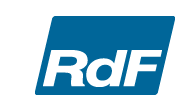
Help with Searching
This search engine helps you find documents on this website and related sites. Here's how it works: you tell the search service what you're looking for by typing in keywords, phrases, or questions in the search box. The search service responds by giving you a list of all the Web pages in our index relating to those topics. The most relevant content will appear at the top of your results.
How To Use:
- Type your keywords in the search box.
- Press the Search button to start your search.
Don't worry if you find a large number of results. In fact, use more than a couple of words when searching. Even though the number of results will be large, the most relevant content will always appear at the top of the result pages.
Search Basics
Here are some tips and tricks to customize and fine-tune your search:
Phrases
Lower vs. Upper Case
Included/Excluded
Wild Cards
Relative Search Patterns
Search using Phrases
You can link words and numbers together into phrases if you want specific words or numbers to appear together in your result pages. If you want to find an exact phrase, use "double quotation marks" around the phrase when you enter words in the search box.
Example 1: To find references to spring loaded probe assemblies, type "spring loaded probe assemblies" in the search box. You can also create phrases using punctuation or special characters such as dashes, underscore lines, commas, slashes, or dots (“data sheet R-22”).
Example 2: Try searching for 1-800-999-9999 instead of 1 800 999 9999. The dashes link the numbers together as a phrase.
Lower vs. Upper Case:
Searches are case insensitive. Searching for "rtd" will match the lowercase "rtd" and uppercase "RTD". All searches are accent insensitive as well.
Included/Excluded Words:
To make sure that a specific word is always included in your search topic, place the plus (+) symbol before the key word in the search box. To make sure that a specific word is always excluded from your search topic, place a minus (-) sign before the keyword in the search box.
Example: To find recipes for cookies with oatmeal but without raisins, try "recipe cookie +oatmeal -raisin".
Wildcards (*):
By typing an * at the end of a keyword, you can search for the word with multiple endings.
Example: Try wish*, to find wish, wishes, wishful, wishbone, and wishy-washy.
Relative Search Patterns:
You can search more than just text. Here are all of the other ways you can search on the net:
link:address
Finds pages that link to the specified address, or a substring of it. Use link:http://www.rdfcorp.com or link:rdfcorp.com to find all pages linking to RdF's website. Although the RdF Search Engine does not have the range and scope to be able to run this method of search effectively, many of the large public search engine do. Try this search at Google, AltvaVista, or Lycos.
text:text
Finds pages that contain the specified text in any part of the page other than an image tag, link, or URL. The search text:thermocouple would find all pages with the term thermocouple in the body text, without listing pages where only an image, or an alternative text tag for that image uses the word ‘thermocouple’.
title:text
Finds pages that contain the specified word or phrase in the page title (which appears in the title bar of most browsers). The search title:platinum would find pages with Platinum in the title.
url:text
Finds pages with a specific word or phrase in the URL. Use url:products to find all pages on all servers that have the word ‘products’ in the host name, path, or filename - the complete URL, in other words.
|




